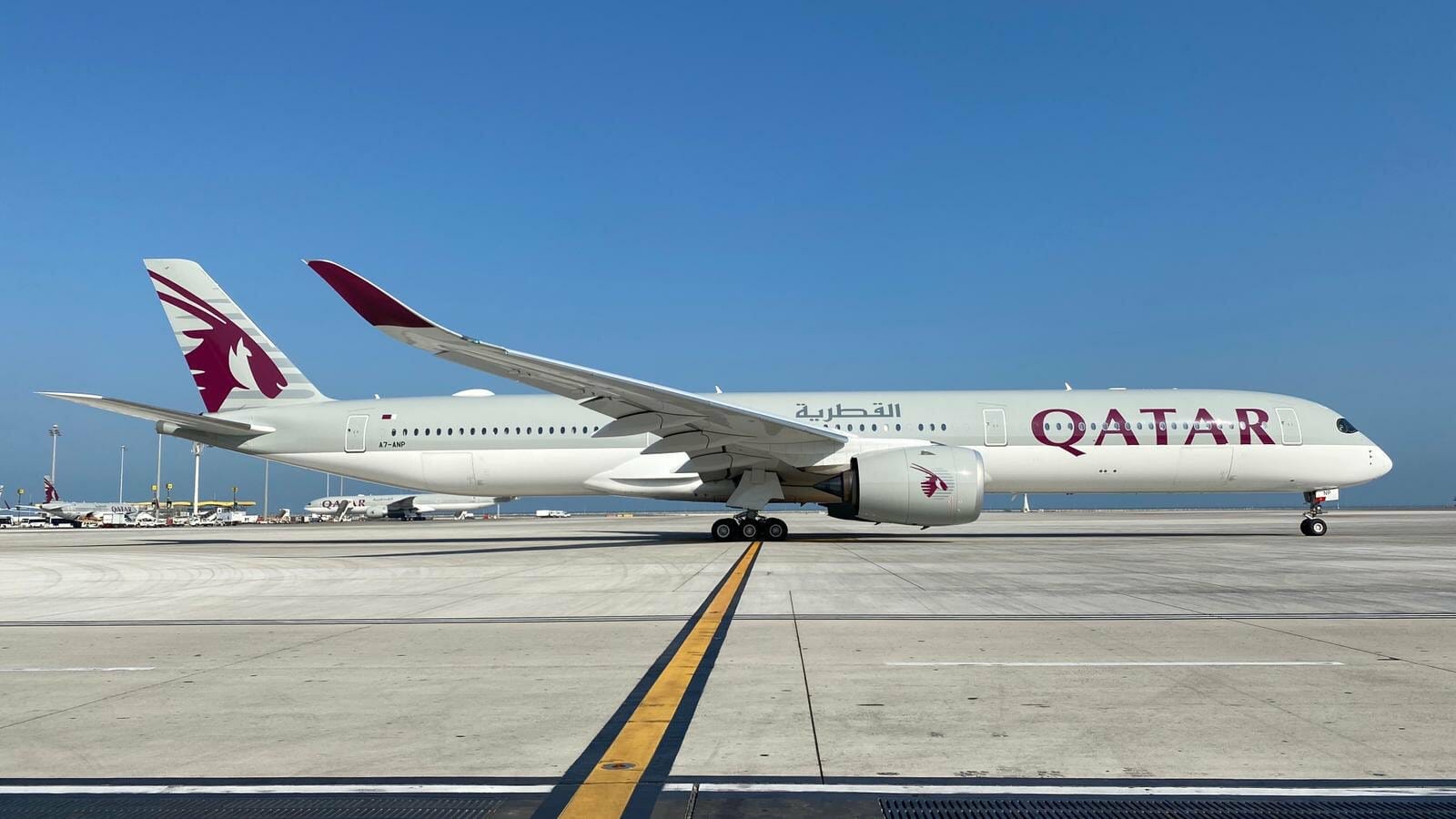
QatarAirways AirbusA350 1000
In a world full of political tensions, 2021 has started on the bright side in the Middle East. The signing of the Al Ula-agreement by the six leaders of the Gulf Cooperation Council during their summit on January 5 ends 3.5 years of tensions with Qatar and its neighbor-states. When a Qatar Airways Airbus A350-1000 landed in Riyadh at 3.04 pm local time on January 11, it was the first direct service between the two countries since June 2017.
Back then, Saudi Arabia, Bahrain, Egypt, and the United Arab Emirates (UAE) imposed sanctions and a full blockade of all travel via air, sea, and road to Qatar. They held Qatar accountable for supporting Iran-backed terrorist groups, banning all traffic between the four countries and Qatar. Qatar Airways was forbidden to cross the four countries’ airspace, forcing it to re-route and extend its services while the blockade at the same time caused deep cuts in its regional network.
Last July, Qatar announced it was seeking arbitration after the International Court of Justice rejected appeals by the four Arabian states against Qatar’s claim that the blockade was illegal and contravening three treaties.
The solidarity and stability agreement signed at the 41st GCC summit on January 5 puts an immediate end to the tensions and blockade. The agreement, in which the US Trump administration and Trump’s son-in-law- Jared Kushner have played a significant role, marks “the turning of the page on all points of difference and a full return of diplomatic relations”, said an optimistic Saudi foreign minister Faisal bin Farhan. Others, like his UAE colleague Anwar Gargash, were more cautious on the rebuilding of the relationship with Qatar. As the Middle East Institute in Washington said in its analyses of the agreement, it seems to be lacking details on the issue of political support of Qatar to extremist Muslim groups like the Muslim Brotherhood.
Airspace open to Qatari services
Even without having seen the fine printed details, the Al Ula-agreement has resulted in the reopening of the four countries’ airspace to Qatar Airways on January 7. The first to benefit was the Doha-Johannesburg service from Qatar Airways, on which the Airbus A350-900 could take the shortcut again flying West and over Saudi Arabia and Egypt instead of circumventing the UAE peninsula like in the past years. From January 9, UAE airspace has also been opened.
Qatar Airways has responded quickly by announcing the resumption of services to the Saudi capital Riyadh from January 11, to Jeddah on the 14th, and to Dammam on the 16th.
The arrival of the first Saudi Airbus A320 in Doha on January 11. (Qatar Airways)
Saudia Airlines has opened up bookings to Qatar from January 11, offering four weekly services from Riyadh and three from Jeddah. Saudia dispatched an A320 on the first service from Riyadh to Doha since June 2017, arriving at Hamad International Airport at 5.58 pm local time.
Qatar Airways returned to Egypt, serving Cairo from January 18 and Alexandria on the 25th. From January 27, it will once again offer two daily direct services to Dubai, operating the Boeing 787-8. Until the 26th, Dubai is only served via Kuwait as it has been in the past 3.5 years. It will also return to Abu Dhabi on January 28.
UAE carriers take time
On the first days after the announcement of the agreement, no immediate announcements were coming out of the UAE. Air Arabia has been the first to reopen services on January 18 from Sharjah, while flydubai will offer double daily services from January 26 out of DXB. Etihad will resume flights to Qatar from February 15 with initially three daily services.
Emirates has yet to disclose its plans. A factor in this could be that Emirates lacks the right-sized aircraft on this short-haul route and will likely wait and see how its close partner flydubai fairs. Before the 2017 blockade, Doha-Dubai featured prominently in the daily schedules of both Qatar Airways and Emirates. Being forced to end this route was costly to Qatar Airways and forced it to rethink its schedule.
Egypt Air will resume services between Cairo and Doha on January 23, but only on specific days.
It will be interesting to see how other low-cost carriers from the Gulf region will respond to the reopening of Qatar. So far, Flynas or flyadeal from Saudi Arabia aren’t listing Qatar as its destination, and neither is Wizz Air Abu Dhabi, which is to commence services on January 15.
Views: 1




